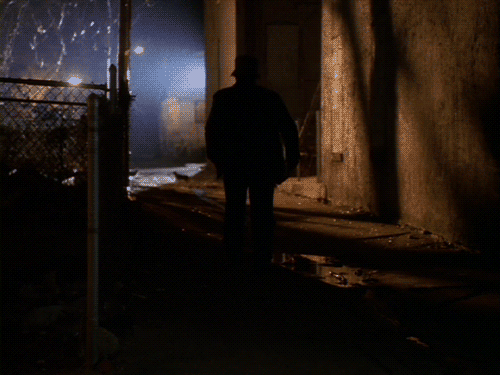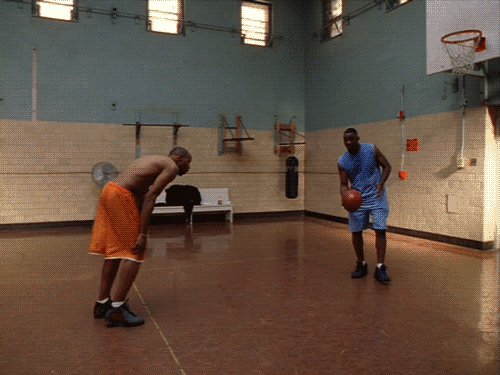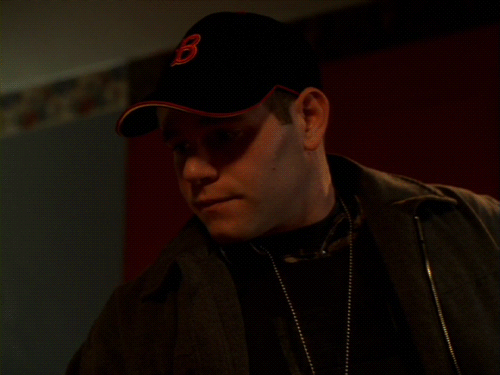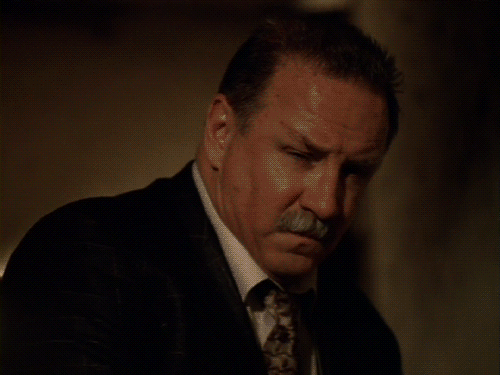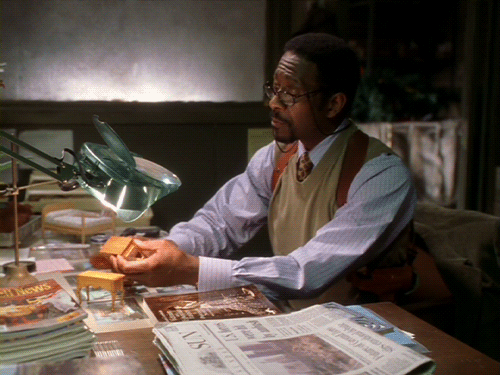Bubbles is attributed the epigraph “[There is a] … thin line between heaven and here” in Old Cases, Season 1, Episode 4 of HBO‘s The Wire. He delivers the line at about the midpoint of the episode, and the line came just at the right moment to punctuate what I perceived as the first whack-me-over-the-head, must-be-gifted juxtaposition. That I held off on GIFfing anything (including this) until I had made my way through all 5 seasons / 60 episodes is a result of knowing that I wanted to get as far through the series (having never seen it) before the end of my summer break. We’ve been back at school for two weeks, and having finished the series, I’m ready to play.
This post is also an entry into the Animated GIF Assignment 1352, Summarize a Wire Episode in GIFs. I haven’t necessarily done a complete summary so much as tried to interpret the epigraph as portrayed in the context of the episode. In scanning the previous offerings for this assignment, I was pleased to see that, aside from one GIF, it appears that no one has yet summarized this episode. And so, onward!
Partway into the episode, Bubbles hitches a ride home with MucNulty (on his way out into the suburbs to his son’s soccer game), who thus takes Bubbles on a detour .
McNulty meets with his ex-wife at the soccer game (she shirks back from shaking Bubbles’ hand and pulls her coat closely about her protectively), and Bubbles takes in the surroundings.
The lush, green grass and uniforms of the kids playing the organized soccer game in the bright day time sunlight with spectators galore set us up for the immediately subsequent scene when McNulty’s car pulls up after dark back in the inner city. There, kids play on the pavement/dirt lot beside a dimly-lit back alleyway. One adult stands, plastic shopping bag in hand, as the kids circle round. The stark contrast in the scene cut had me immediately playing back the transition to check the parallel.
It is then that Bubbles delivers his line, having just seen how close the two worlds are physically — and yet how distant that suburban reality is for those caught in the city.
Bubbles has no options but to return to his world, and McNulty ponders.
There are a number of other nice moments in the episode which speak to the notion of a thin line between two worlds.
Avon Barksdale lives a life influenced by, but isolated from the street. Stringer Bell runs the day-to-day dirty work, and Avon has everything done for him by his lieutenants (they are always opening and closing the door to his office for him). In this scene from Old Cases, I found this emphasized by the way that Stringer sets-up Avon for a jump shot in the gym. All Avon has to do is grab the perfect set-up (from a standing start) and dunk the ball. Minimal preparation, but all the glory.
The scene where Herc and Carver go to roust the missing Bodie and encounter his mom also presented a nice contrast between the constant and stark representations of Bodie’s outdoor street life, and the indoor home world of his mother. Granted, her living room has little of the brightness of the living rooms of the police and politicos (are they brighter the higher up they go?), but a wholesome warmth is there.
Herc realizes the contrast between the brash approach he and Carver naturally brought with them from the street to her front door, and the welcome she provided when she asks him if he “would like to sit down.” Her nature calms the Herc(ulean) cop, and he softens noticeably. The difference between being rude and being polite is only a choice away.
Back outside, Carver asks him, “What were you doing in there?”
“Talking,” Herc replies.
“Talking.” Carver is stunned.
Meanwhile, back at the station, Polk is considering the fine line between the drudgery of his job as police, and the short-term pain of intentionally throwing himself down the stairs so that he can retire on a disability pension like his partner Mahon, previously injured by Bodie. Either the sudden arrival of McNulty and Kima, or more likely his lack of fortitude, scuttles his plan.
Then we arrive at one of my most long-anticipated #wire106 GIF moments, capturing Lester Freeman building his furniture miniatures. Initially a bit of an enigma (we wonder how it is that he is allowed to just sit around making furniture miniatures when there is work to be done?), we first see Lester’s skills at work as he susses out a photo of Avon Barksdale in the previous episode The Buys, episode 3, and then runs down the pager number of D’Angelo here in Old Cases, episode 4.
By this time, McNulty realizes that Freamon not an oddity, but is rather “real Po-lice.” We see some foreshadowing of McNulty’s future when we later learn of the bizarre rationale behind Lester’s 13 year, 4 month exile to the Pawn detail. The dedication and ability of McNulty and Freamon in solving crimes contrasts wonderfully with the slack and ineffective efforts of Mahon and Polk. And the very thin line between being real police and kowtowing to the politically-motivated, stat-driven bosses is clearly evident when Freamon offers his sage advice to Jimmy near the end of the episode.
Jimmy, however, does not succeed in avoiding the question — he has already been asked the question by Jay, and he has already answered that he would hate the diesel fumes of the Marine Unit. (Spoiler: As we see at the end of Season 1, that is where he ends up.)


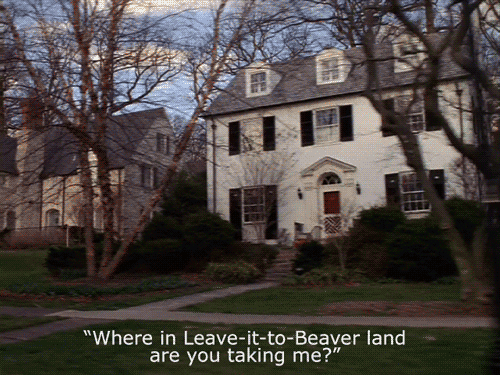
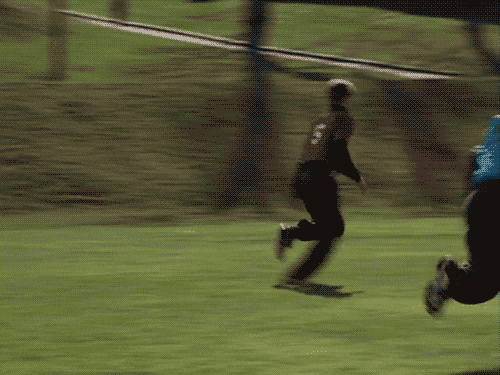
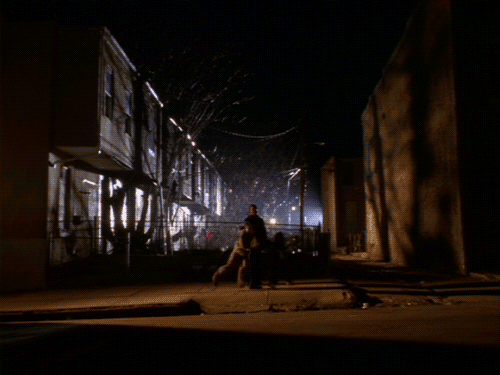
!["Bubbles: [There's a] thin line between Heaven and here." animated GIF by @aforgrave](http://aforgrave.ca/detritus/wp-content/uploads/2014/09/Bubbles-Thin-Line-Between-Heaven-and-Here-SMALLER.gif)
